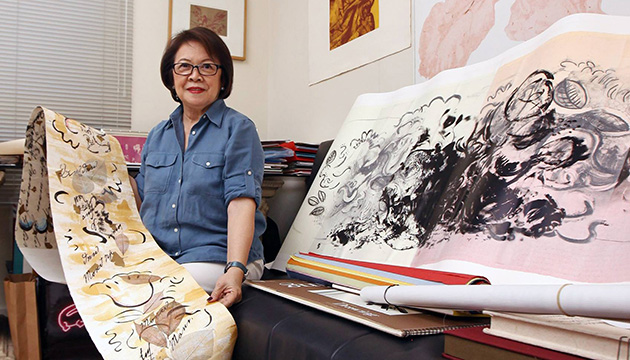[Note from The Editorial Board: Joseph Planta is the founding editor of TheCommentary.ca, a website that features audio interviews and commentaries. Since 2004, the Vancouver-born, –raised and –based conversationalist has interviewed hundreds of distinguished individuals in the arts, journalism, and politics. Planta spoke to Manila-born and –raised author Miguel Syjuco, whose debut novel Ilustrado was a New York Times Notable Book of 2010. The work also earned Syjcuo the 2008 Man Asia Literary Prize, and a Palanca Award for novel in English. With Planta’s permission, the CanadianFilipino.Net is running the interview.]
Joseph Planta: I am Planta: On the Line. This is TheCommentary.ca. One of the most highly awaited and critically acclaimed books of the season, Ilustrado is out now. Its author is the much talked about Miguel Syjuco, whose first novel has already won the Man Asian Literary Prize and the Palanca Award, and did so before it was published. The book has also been well received in Canada, the United States and in the Philippines, whose culture, popular and otherwise, is at the centre of this book. My parents are Filipino, but I was born here, and so I’ve never identified myself as anything but a Canadian, perhaps a British Columbian, certainly a Vancouverite. But my culture is something I’ve discussed on this program, whether it’s been with authors like Nam Le, Judy Fong Bates, Wayson Choy or Denise Chong, as well as Mable Elmore, the first Filipino-Canadian elected to the BC Legislature. And it’s fitting, after a short vacation there earlier this year, and discussing the recent elections there on this show with Winnie Monsod, that all of this thinking about who I am comes together with Mr. Syjuco’s book, an astonishing, introspective look at Filipinos and the Philippines. It’s a novel, yet its gift is its ability to give a view that’s useful, whether you’re like me and you have some roots, or you’re looking for great writing. It’s often funny as well. www.syjuco.com is his website for more. Illustrado is published in Canada by Hamish Hamilton. I’m very pleased to welcome to the Planta: On the Line program, from his home in Montreal, Miguel Syjuco; Good morning, Mr. Syjuco.
Miguel Syjuco: Hello, Joe how are you? Please call me Miguel.
JP: Miguel. I’m very well, yourself?
MS: I’m great. Thank you for having me on the show.
JP: You’re very welcome. This book tour is taking you all over. Are you enjoying it?
MS: I am. I mean, yeah, after spending four years just stuck at my desk writing, it’s really refreshing to be able to get out there and meet readers and be in the world again.
JP: The reception that the book’s gotten has been very good. Did you expect that, writing this book?
MS: Uh, no. Of course not. You know, you always, I think, see only the weaknesses or you think the worst of your own writing. I’m still getting over, you know, my surprise that it’s actually been published, you know, much less published so well and being read. You know, half way through the book, I even gave up on it. I went and I started another novel, thinking that, you know, Ilustrado would be too challenging or too weird or too unconventional for ever to see print. But you know, I mean, I trust that the readers out there are all smart readers, are all curious and wanting to be intellectually challenged and, you know, that was always my hope and I’m glad to see that that’s actually the truth.
JP: I’m going to get you to explain the book in just a second but I want to go to the acknowledgements because when I first got the book, that’s where I wanted…that’s where I went first, and I was so delighted to see you thank Manolo Quezon. I am such a fan of his work on television and online. He’s such a gifted writer, a gifted historian and I have always wanted to have him on the program but I never managed to book it. Do you know him?
MS: I do, yeah. He is a friend and he is certainly one of my idols. What he is doing is so important in the Philippines and the rest of the world. He’s also been…his work…his blog, I should say, the Daily Dose, is my lifeline to what’s going on in the Philippines.
JP: For someone like, who doesn’t know Filipino politics at all, heretofore did not know, but since I’m such a junkie about politics, to American-Canadian politics, to use him as a, I guess, this outlet to learn more, I mean, there’s no one better.
MS: No, there really isn’t.
JP: Yeah.
MS: He does it with such compassion and eagerness and fairness, as well, and he really clarifies what is all too often quite muddied and to complicated.
JP: Now let’s go to the book. The book is much more than the murder that it starts out, that happens in the beginning, right?
MS: It is. It starts off, you’re right, as a murder mystery. Crispin Salvador, the great Filipino author, is found dead in the Hudson River and everyone declares it a suicide, but his young student, Miguel, thinks differently because missing from Crispin’s apartment is a manuscript that Crispin had intended to expose the corruption of the ruling elite in the Philippines. And so Miguel journeys home and, you know, finds the country in complete and utter disarray and he discovers that while, you know, the story is as much his as it is Crispin’s, as it is Manila’s, as it is the Philippines.
JP: I read somewhere that you’re a fan of Steven Marche.
MS: I am, yeah. Reading his stuff is always good fun and quite enlightening, you know, about what fiction can actually do.
JP: Yeah, we had him on for that book. . .
MS: Shining at the Bottom of the Sea.
JP: Shining at the Bottom of the Sea, yeah, and I remember when I first read it, I'd never read anything like it before and so, after reading it for yourself, did you think that this book, Ilustrado, would be a possibility?
MS: I read it after I had finished the book, of course. I read it very recently, a few months ago, and I saw in Steven Marche a kindred spirit, someone who likes to play with form and likes to experiment to see, you know, what can be done with the novel. Everyone’s always talking about the death of the novel but books like Marche’s are…these are books that really make me feel that oh no, there’s certainly life in the novel for me and that’s one of the reasons why I wrote Ilustrado in the way I did. As you know, it’s a collection of different fragments: work from Crispin Salvador’s life’s accumulation of writings, blog entries, text messages, newspaper articles, you know, jokes. I threw in everything that I feel make contemporary life. The way I’ve created Ilustrado is…it seems unconventional, in terms of how we read a novel, but it’s certainly not unconventional in terms of how we create a perspective or cobble together our view of contemporary life through so many sources. All you have to do is turn on CNN and then you see, you know, tickers and screen within screens and a whole lot of bunch of stuff going on. So, Ilustrado might seem unconventional but it’s certainly not inorganic to the way we look at the world today.
JP: When I started the book, I wanted to get my notepad out and start listing Crispin Salvador’s bibliography. . .
MS: (laughs)
JP:. . . just to see how much he wrote. I never got to it because I just got distracted with the story. You must have some list or something like that yourself.
MS: I do. Yeah.
JP: How much stuff is on it?
MS: He’s written a whole bunch of stuff, dozens of books, everything from great seafaring adventures to pop crime writing, lots of essays, lots of short stories, several novels, most of them political about dealing with Communism in the Philippines back in the sixties. He’s written a great Marcos work, charting the rise and fall of Ferdinand and Imelda Marcos. He’s written poetry. He’s anthologized the spoken word and oral legends that is native to our country and he, well, in his waning years, he published Auto plagarist, which was a 2,500-some page failure, really, of a memoir. So, he’s written a little of everything.












